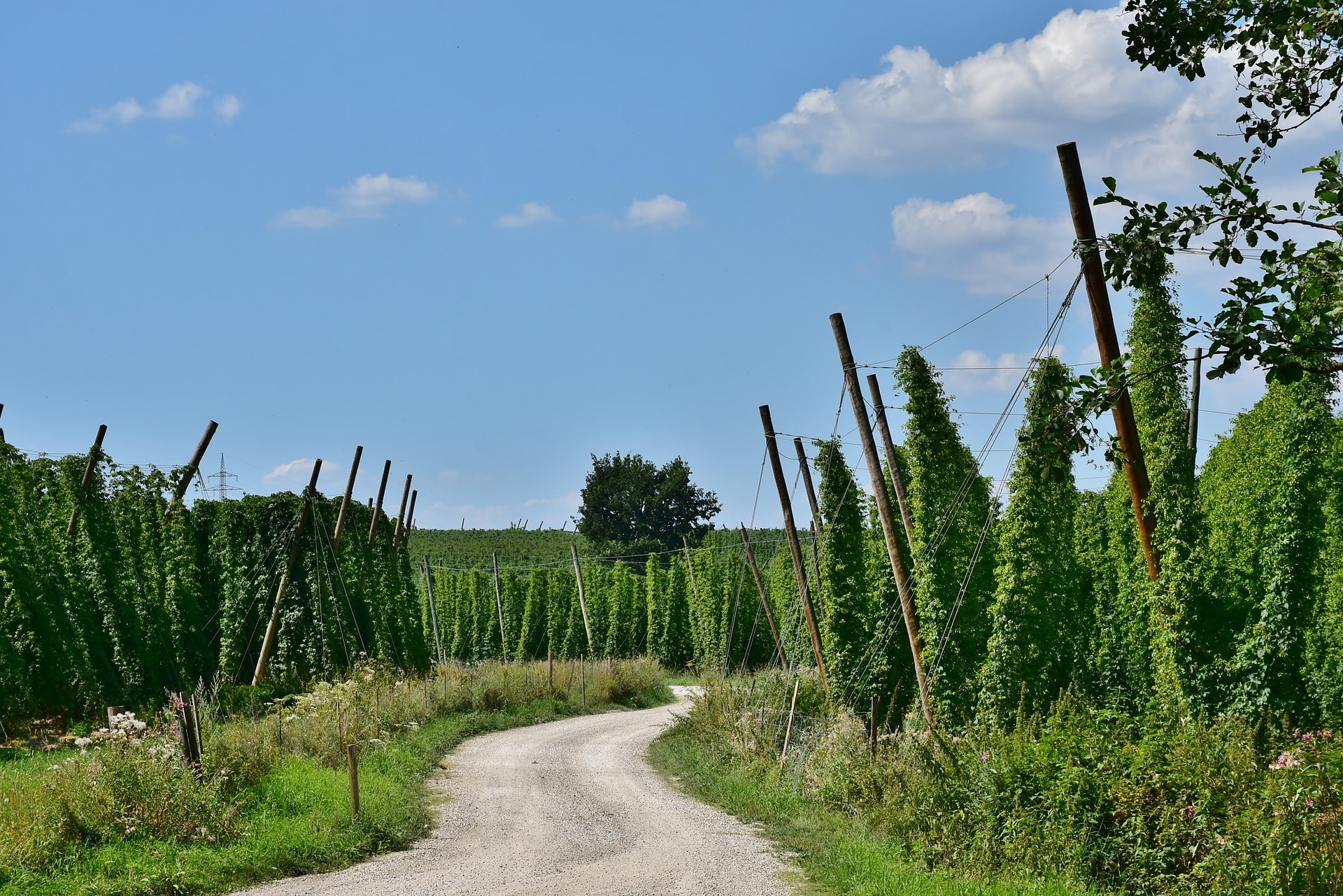Until a national bottle deposit return scheme is created to enable re-use of glass bottles, they will remain the most energy-intensive packaging and transport option for alcohol. Large amounts of energy are needed, and it generally comes from fossil fuels.
- Aluminium cans for beer have a lot lower impact on the environment than glass bottles, unless the glass bottles are re-used, as in many countries, rather than recycled
- Aluminium cans are more efficiently transported because they are stackable and weigh less
- Wine bottles have the same issues, but wine is more complicated, especially if the wine is expected to age, which it won’t do in aluminium or plastic
- Wine boxes are one solution, but often the internal wine bag is not recyclable
- Wine from far afield is normally shipped in 24,000 litre plastic bladders to reduce the costs compared to glass bottles, however often, the bladder is not re-used
Both hops farms (pictured) and vineyards in many countries are threatened by local changes in the growing conditions and by the impact of extreme weather. Fossil fuel use and global warming is the culprit.

